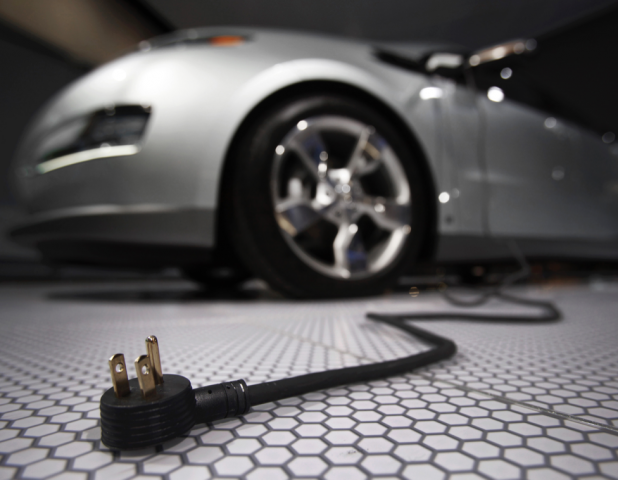Govt working to produce 4-wheelers under EV policy
Likely to offer incentive package to new and existing automakers

The government is likely to offer an incentive package to new entrants and existing automakers in a bid to encourage production of four-wheelers under the electric vehicle policy.
An EV policy had been formulated for two-three wheelers, which is being implemented but now the government is working on a policy for four-wheelers. It is likely to incorporate the policy for four-wheelers into the upcoming auto policy.
An inter-ministerial committee working on the EV policy for four-wheelers has proposed tax break to attract investors. Minister for Industries and Production Hammad Azhar chaired a recent meeting of the inter-ministerial committee held to finalise the policy for four-wheelers.
Proposed incentive package
In the draft EV policy for four-wheelers, customs duty on specific parts has been proposed at 1%. Duty rates for non-localised (non-EV parts) and localised parts have been proposed at 10% and 25% respectively across the board for all new entrants and existing manufacturers.
General sales tax (GST) and withholding tax (WHT) on EVs having battery pack of 50 kWh or less (as an alternative to 800cc car) are proposed at 1%. Minister for Science and Technology Fawad Chaudhry had proposed to add light commercial vehicles (LCVs) with a higher battery pack into the policy with similar incentives.
The committee agreed to the proposal and the Engineering Development Board (EDB) was advised to make required amendments.
Azhar stressed that focus should be on drafting a simple EV policy for four-wheelers after evolving consensus among stakeholders. He also highlighted that the cost of smaller EVs under the proposed policy would be cheaper.
Meanwhile, the EDB chairman said that the government must focus on provision of EVs at relatively cheaper prices to consumers and provide an equal chance to all manufacturers for the local manufacturing of EVs.
He said that the government may consider creating a free market where shift in the market would determine direction of a company or industry. Furthermore, rates of taxes on the entire range of vehicles are on the higher side and need rationalisation.
He added that at least three years were required for the development of a model and rolling it out. Further two years of cushion is given to market the product. Therefore, there is a tendency to have five-year tenure of the policy.
Furthermore, a substantial reason will be required to reduce the policy period to three years.
Current auto policy
The previous government of Pakistan Muslim League-Nawaz (PML-N) had formulated a new auto policy in an attempt to break the monopoly of existing three major auto players. It offered incentives to the new entrants. However, the situation did not change much.
Earlier, during a high-level committee meeting on the auto sector, some ministers pointed to the production of less fuel-efficient cars and charging higher prices by the domestic vehicle manufacturers.
The minister for science and technology stressed that there should be no savings for the industry at the cost of public.
He quoted the example of a domestic auto vendor offering its entry model at Rs1.6 million. However, he said a similar vehicle model in the neighbouring country cost Rs0.4 million.
Planning Commission deputy chairman said that vehicles, including two and three wheelers, were not being manufactured in line with the international safety standards. Moreover, they were less fuel efficient. Adviser to PM on Institutional Reforms and Austerity Dr Ishrat Husain remarked that the new entrant policy under the ADP 2016-21 had shown positive results. As a result, six automotive companies, including KIA and Hyundai, had already started manufacturing.
Published in The Express Tribune, November 13th, 2020.
Like Business on Facebook, follow @TribuneBiz on Twitter to stay informed and join in the conversation.



















COMMENTS
Comments are moderated and generally will be posted if they are on-topic and not abusive.
For more information, please see our Comments FAQ